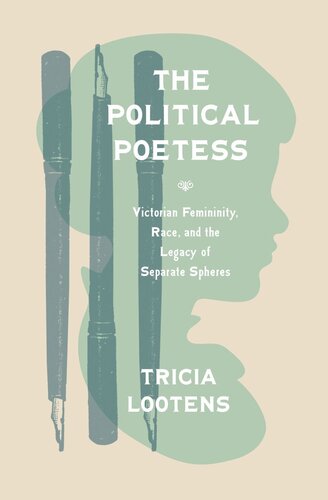

Most ebook files are in PDF format, so you can easily read them using various software such as Foxit Reader or directly on the Google Chrome browser.
Some ebook files are released by publishers in other formats such as .awz, .mobi, .epub, .fb2, etc. You may need to install specific software to read these formats on mobile/PC, such as Calibre.
Please read the tutorial at this link: https://ebookbell.com/faq
We offer FREE conversion to the popular formats you request; however, this may take some time. Therefore, right after payment, please email us, and we will try to provide the service as quickly as possible.
For some exceptional file formats or broken links (if any), please refrain from opening any disputes. Instead, email us first, and we will try to assist within a maximum of 6 hours.
EbookBell Team

4.7
106 reviewsThe Political Poetess challenges familiar accounts of the figure of the nineteenth-century Poetess, offering new readings of Poetess performance and criticism. In performing the Poetry of Woman, the mythic Poetess has long staked her claims as a creature of "separate spheres"—one exempt from emerging readings of nineteenth-century women's political poetics. Turning such assumptions on their heads, Tricia Lootens models a nineteenth-century domestic or private sphere whose imaginary, apolitical heart is also the heart of nation and empire, and, as revisionist histories increasingly attest, is traumatized and haunted by histories of slavery. Setting aside late Victorian attempts to forget the unfulfilled, sentimental promises of early antislavery victories, The Political Poetess restores Poetess performances like Julia Ward Howe’s “Battle Hymn of the Republic” and Emma Lazarus’s “The New Colossus” to view—and with them, the vitality of the Black Poetess within African-American public life.
Crossing boundaries of nation, period, and discipline to “connect the dots” of Poetess performance, Lootens demonstrates how new histories and ways of reading position poetic texts by Felicia Dorothea Hemans, Elizabeth Barrett Browning, Dinah Mulock Craik, George Eliot, and Frances E. W. Harper as convergence points for larger engagements ranging from Germaine de Staël to G.W.F. Hegel, Virginia Woolf, Elizabeth Bishop, Alice Walker, and beyond.